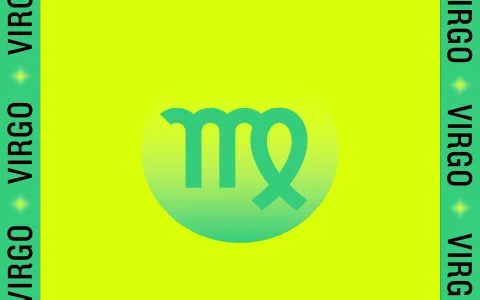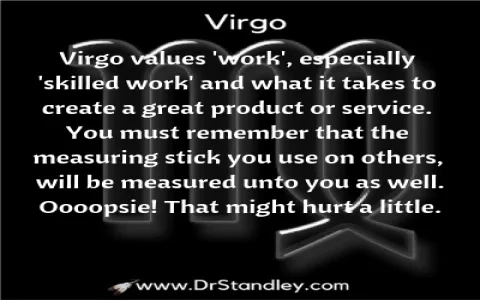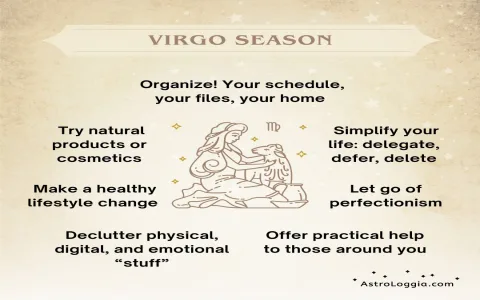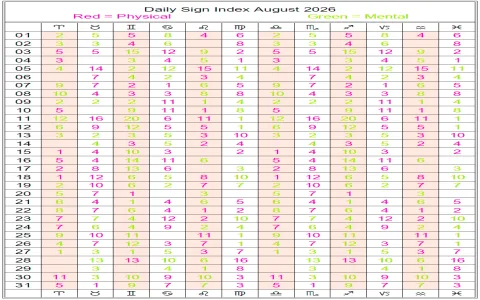Man, let me tell you, I spent years chasing the perfect day. You know the drill. Waking up, immediately checking the alignment of the stars, reading three different forecasts to see if Mercury was going to wreck my presentation, or if Venus was finally going to give me a break.
I am a Virgo, right? So naturally, I was obsessed with order. I’d spend more time planning the perfect routine than actually executing anything. I was convinced that if my ‘cosmic forecast’ looked good, then I could push harder. If it looked bad, I’d preemptively stress out and usually self-sabotage, just proving the prediction right. It was a total mess, a constant feedback loop of anxiety fueled by external nonsense.
The Day I Finally Crashed the Zodiac Bus
The whole system busted last year. I had this huge, critical meeting scheduled—a potential client that could have doubled our revenue. I’d checked every single chart. My primary horoscope said it was a five-star day for finance and negotiation. The secondary one said watch out for miscommunications, but overall, solid. I walked into that room feeling invincible, completely relying on the stars, not my preparation.

I totally bombed it. I mean, straight up wasted the opportunity. I talked over the client, misread the room, and forgot half my slides. When I drove home, I wasn’t mad at my lack of focus; I was mad at the universe. I remember screaming at the radio, “You said this was a lucky day!”
That night, I sat down and realized how utterly dependent I had become on things I couldn’t control. My feeling of “luck” or “success” was completely outsourced. That’s when I trashed the entire cosmic calendar and started building my own internal checking mechanism. Forget tomorrow’s Virgo forecast; let’s figure out what’s actually going on inside my head right now.
Building the Internal Weather Report: My Mood Check Protocol
My goal wasn’t to achieve happiness—that’s too big a target. The goal was simple: acknowledge the current emotional reality so I could operate from a factual baseline, not a predicted one. I call it the Daily Calibration Dump.
I didn’t buy fancy apps or journals. I grabbed a stack of cheap yellow sticky notes. The whole process takes maybe five minutes, but I have to force myself to execute it twice a day.
Phase 1: The Evening Cache Clearing (Anchoring)
Before bed, no matter how tired I am, I sit down with that sticky note. I write three simple things. I am flushing the day’s emotional residue before sleep, which used to be when my brain would spin out.
- What did I actually finish? (Not what I planned, but what got done. It cuts the guilt.)
- What’s the one thing that truly pissed me off today? (I write it out, fold the note, and chuck it. I externalize the anger.)
- What is my baseline emotional temperature right now? (Scale of 1 to 10. 1 being totally flat, 10 being ecstatic.)
I use strong, simple words. I might write: “Finished two reports. My boss calling me at 8 PM pissed me off. Temp: 4.5 – tired, relieved it’s over.” It grounds me and prevents that end-of-day anxiety drift.
Phase 2: The Morning Readiness Check (The True Forecast)
This is the critical step for determining if my “tomorrow is lucky.” Luck doesn’t matter; readiness does. The moment I wake up, before coffee, before checking email, I grab a new sticky note. This is where I check my mood.
I force myself to answer these prompts immediately. No filtering.
- What is the physical feeling right now? (Stiff back, buzzing energy, foggy head, etc.)
- What is the dominant mental feeling? (Dread, excitement, indifference, focused determination.)
- If I had to rate today’s readiness on a scale of ‘Zero Effort’ to ‘Maximum Grind’, what is it? (I literally write the number 1 to 5.)
If I score a 1 (Zero Effort, total dread), I know I need to immediately strip down my schedule. A 1 means I am not ready for complexity. A 5 means I can handle the pressure. This simple check dictates my strategy for the whole day. If I feel foggy, I switch the complex tasks to mechanical ones. I don’t wait for the alignment of Mars to tell me I’m going to struggle.
My luck stopped being about external events and started being about my capacity to handle what came my way. It turns out, when you actually know how you feel before you start, you make way better decisions. And honestly? My days feel a lot luckier now that I stopped relying on a star map and started checking the actual internal controls.
If someone asks me now, “How’s your day going to be?” I don’t look up my sign. I just check my pocket. If I did my morning sticky note, I know exactly what kind of day it’s going to be, because I already checked my own mood barometer.







